China
I dream of seeing the end of the fossil fuel age in my lifetime. I would love to play a role, however small, in helping to bring the era to a close. And to help the next one – the ecological age – off the ground.
But I acknowledge that in that mission at best there's irony, at worst, hypocrisy. It's unlikely someone with my background would exist in a world without petroleum. Ancient sunlight played the matchmaker in my parents' marriage.
Unlike many immigrants, I've been lucky enough to return home throughout my life. I treasure the connection I've been able to maintain with my family. But I also realize it comes at a cost.
It takes 150 trees a year to sequester the carbon from a flight from Newark to Shanghai. It takes a tree about 40 years to sequester a ton of carbon. A flight from NYC to London is about 1 ton. I wonder how much arctic ice has melted, how many polar bear cubs have had to starve, so that I could live this unnatural life, crisscrossing the globe like one my ancestors' deities.
The ethical choice would be not to travel. At the very least to not travel so often. That would be better for the planet and most its inhabitants. The cost in that case would be personal, limited at most to my family. But so far, I have failed to muster the courage.
In a sense, my travels "home" are days spent listening to sirens' song. The return ticket is the lash that binds me to the mast. The truth is that I am never home. Wherever I am, family, rhythms, the earliest memories, are somewhere else.
And yet, there's the irresistible embrace of the song. The feeling of safety and belonging. The joy of returning to land, natural terrain; for even after all these years, New York City still feels a little like being at sea. A familiar ship at best, a fortress in the archipelago of Cyclopses and lotus eaters. But not home. Not Ithaca.
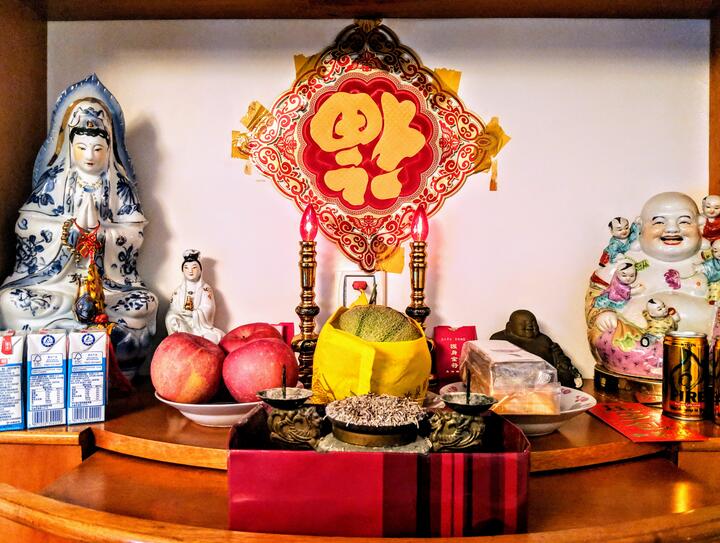
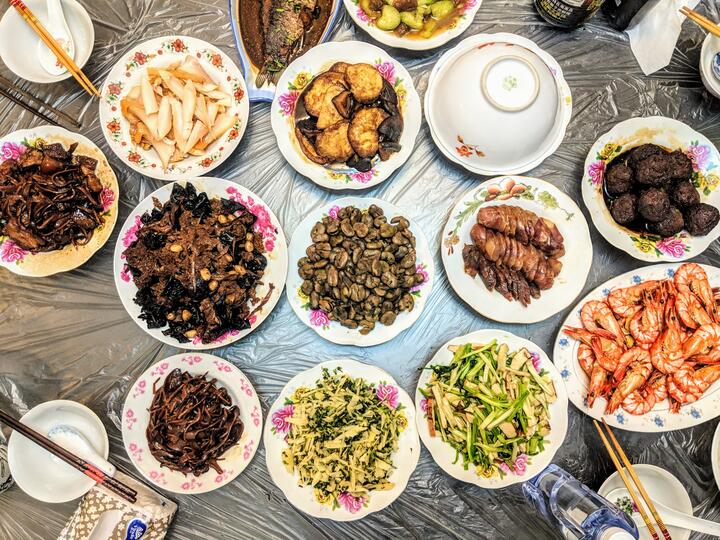
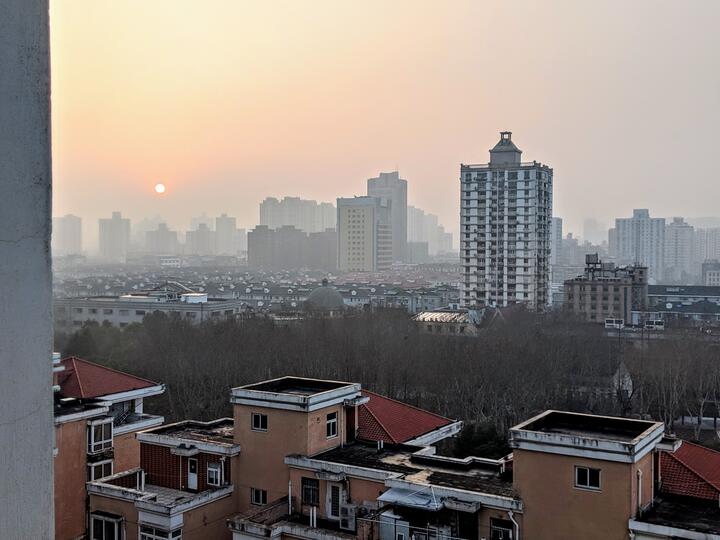
My last stay in Shanghai was in January and February of 2017, also for the Lunar New Year. Before that trip, I was absent for five years – probably the longest span in my life so far. In 2017, I felt like I was reviving long lost memories; this year felt more like return to a natural rhythm.
Winter still feels like an unusual time to be in China. Most of my memories of China are of summer. Besides 2017, my memories of China in winter are mainly from 2006-2007 (December and January), then maybe one or two visits as a child. One of my earliest childhood memories of China is setting of fireworks with my uncle Ju Gong (朱巨公), outside the old home on Li Shan Lu.
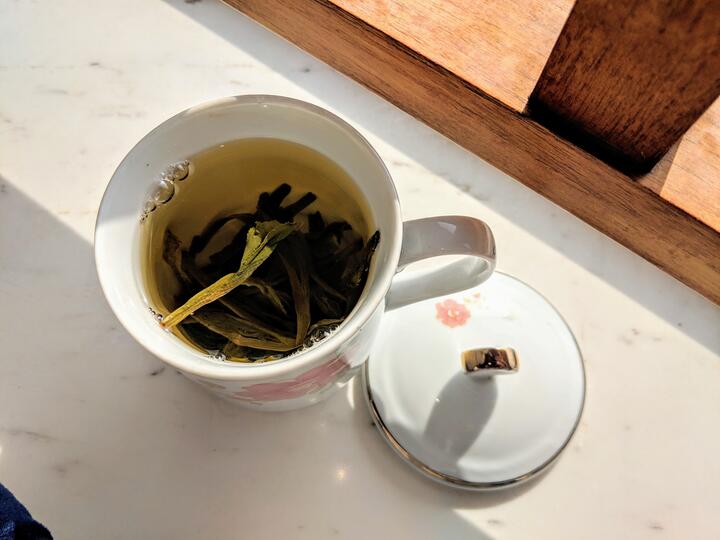
Waiting for the tea lying pillowed in the breeze,
Spring is in the voice now that the heart's at ease.
Journey to the West, Chapter 64.
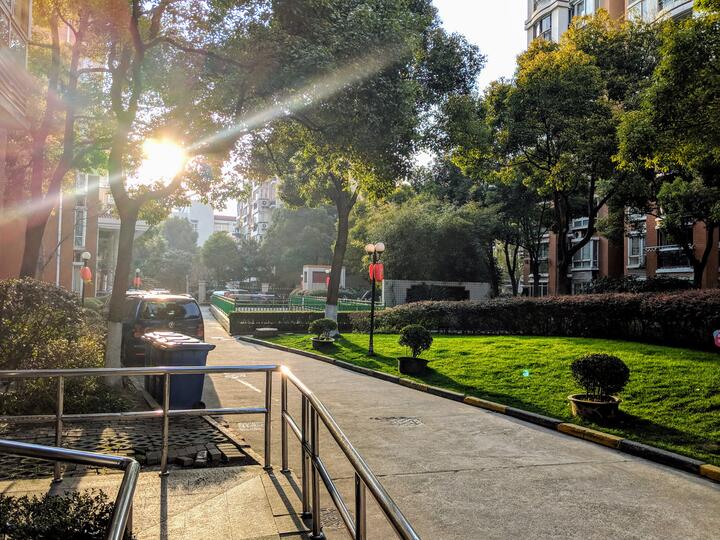
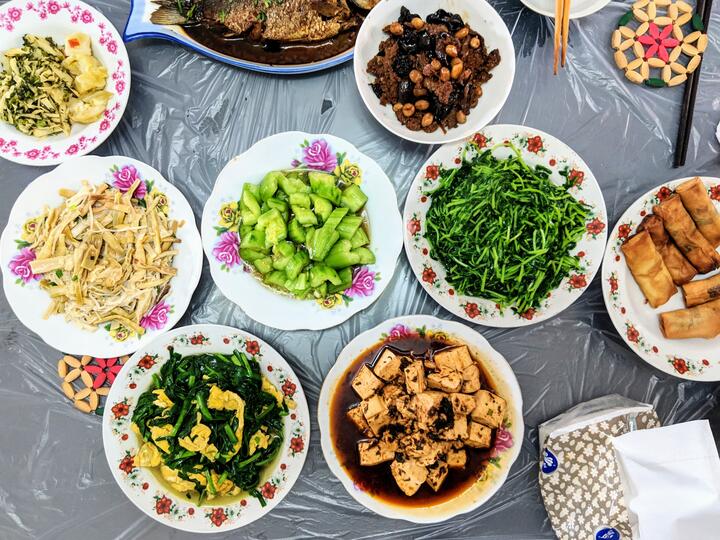
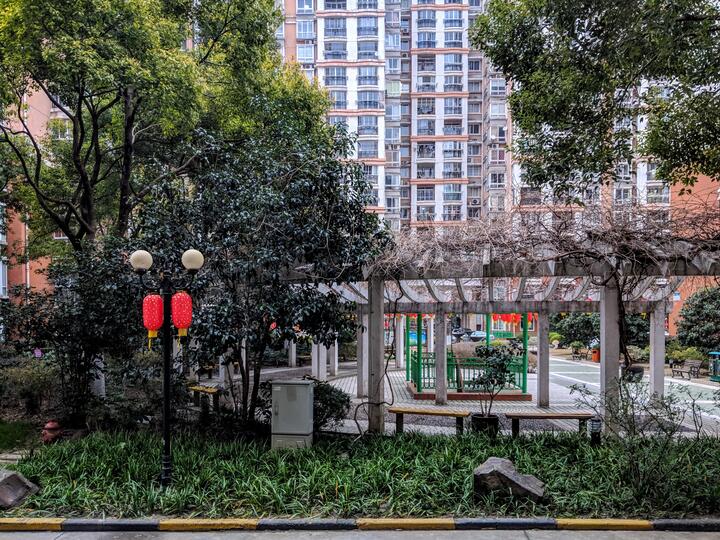
I spent the majority of this stay within a 500 meter radius of the new apartment on Yan Chang Lu. Besides catching up with family, I spent some time on personal projects: getting this website up and running again (using org-mode), learning Emacs Lisp and x86 Assembly, and catching up on some more practical reading (The Millionaire Next Door, The Life Changing Magic of Tidying Up). Once or twice a day I would take a walk in ZhaBei Park (闸北公园), to enjoy the scenery and think a little bit about life.
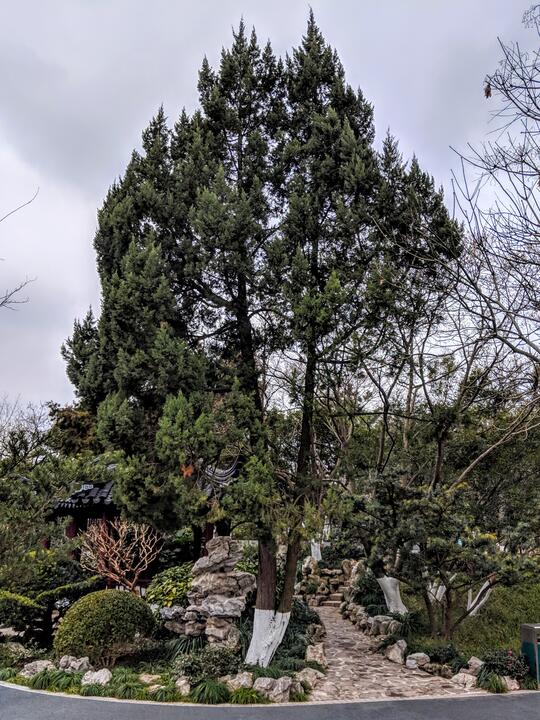
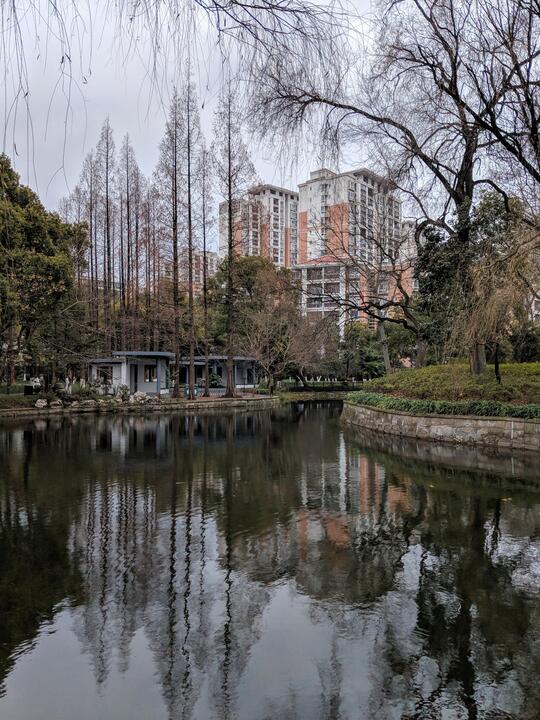
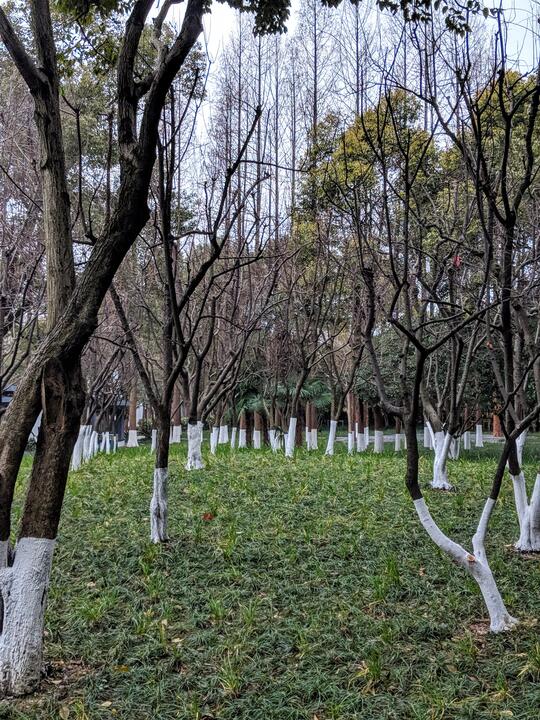
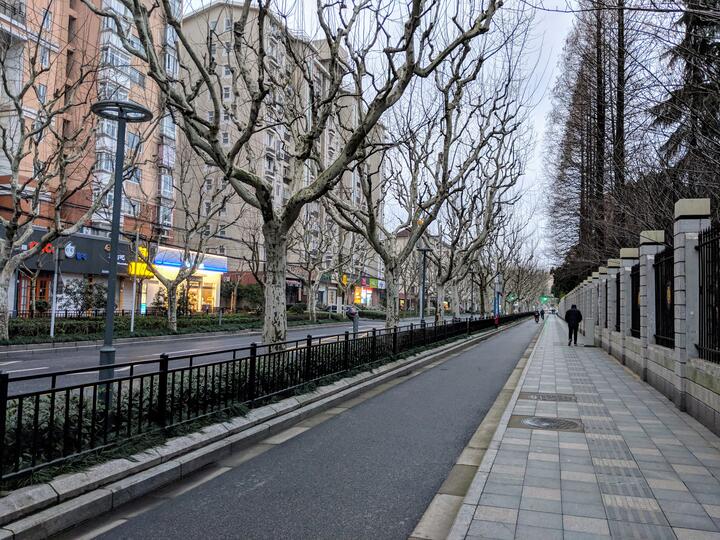
Shanghai shuts down the week of the Lunar New Year. Nearly all of the local shops and restaurants were closed, and the streets were relatively empty, until about the last two days of my stay.
Unlike 2017, I didn't bring my bicycle. For the most part I didn't miss it, as this was a more sedentary stay. In the long term, I will try to keep one in Shanghai. It's a great way to get around the city.
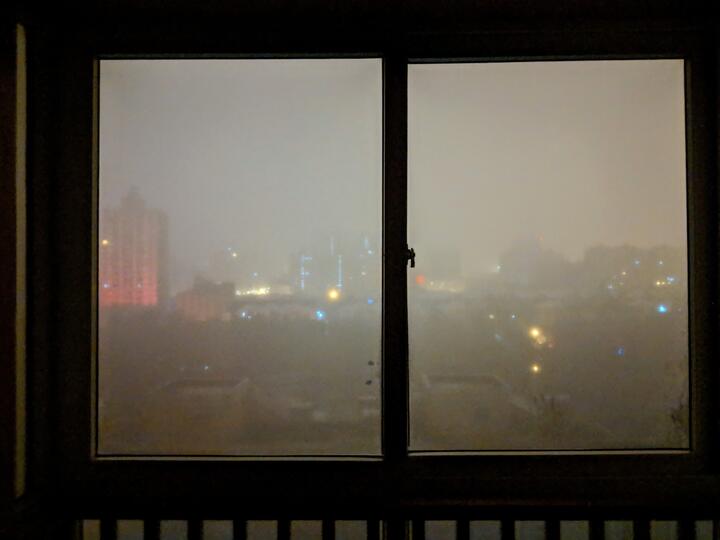
My alarm clock every morning was birdsong. A pleasant surprise, given the heavily urban setting.
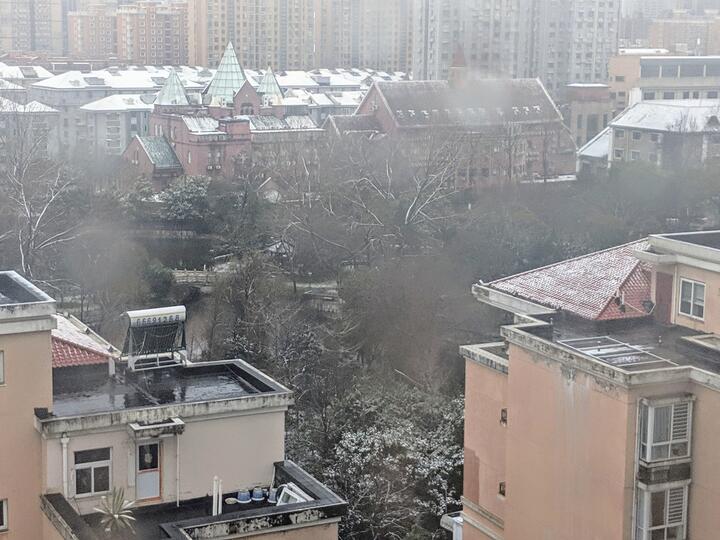
This was my first time seeing snow in Shanghai. ZhaBei Park is visible from the apartment, and vice-versa.
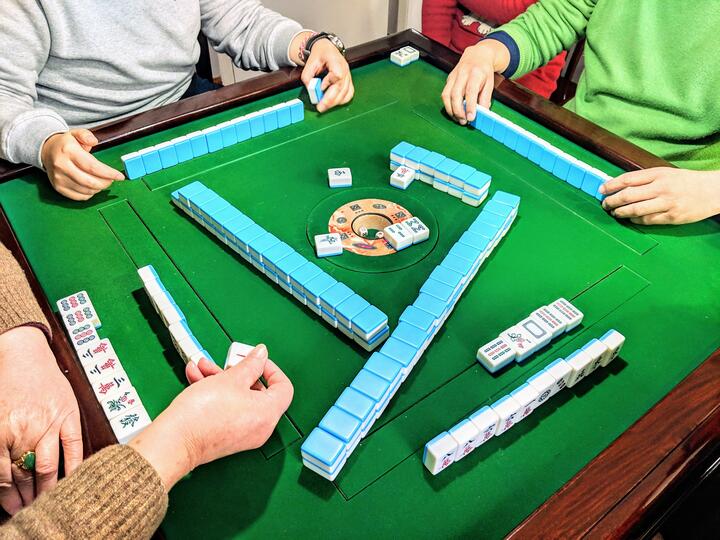
Most of my family doesn't know how to play Mahjong, as it was banned, and stigmatized, during their youth.
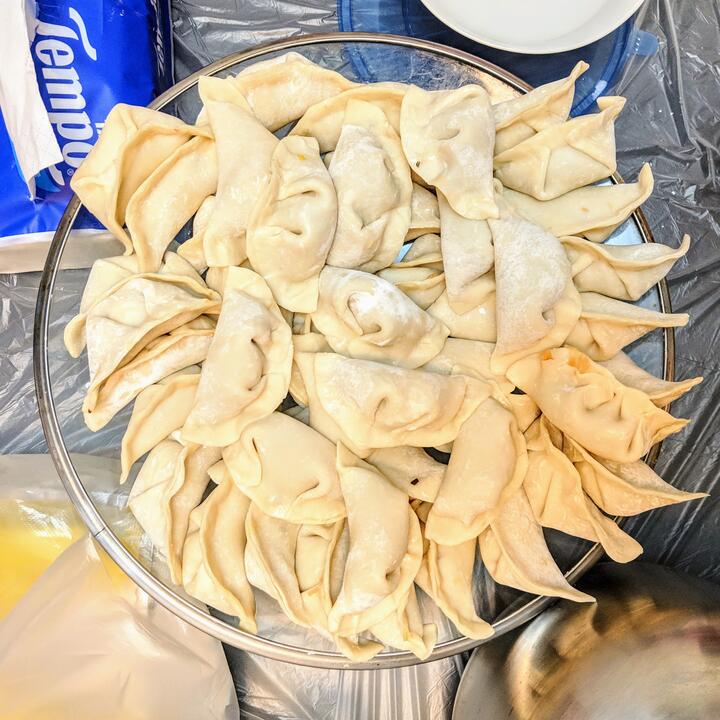
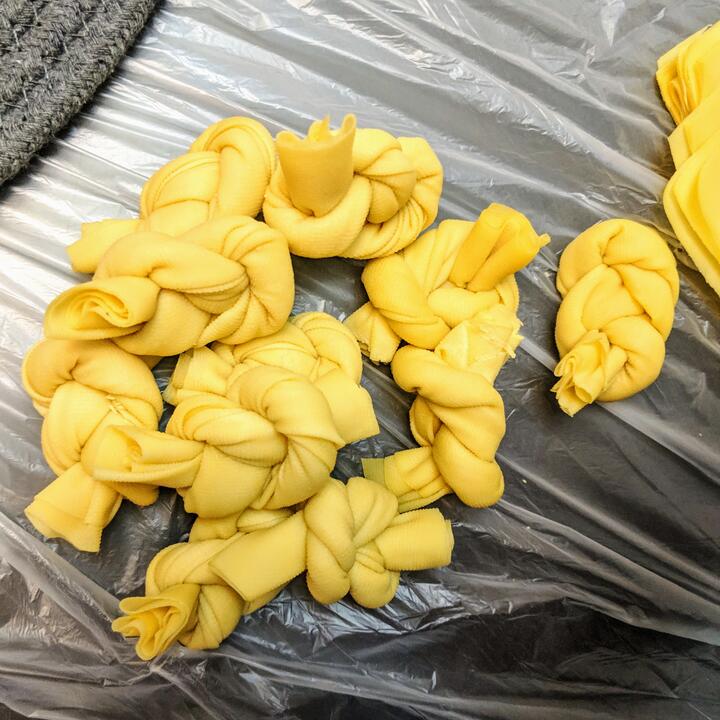
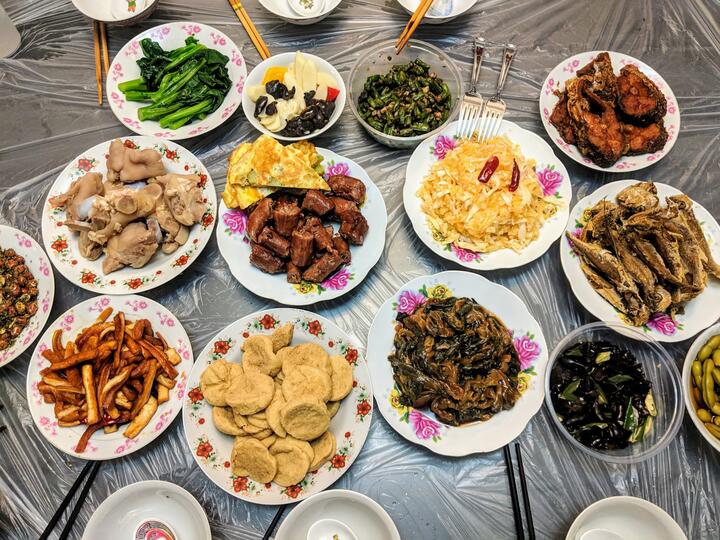
Authentic Chinese cuisine paints with a different palette. There are nuances of flavor that are hard to find abroad.
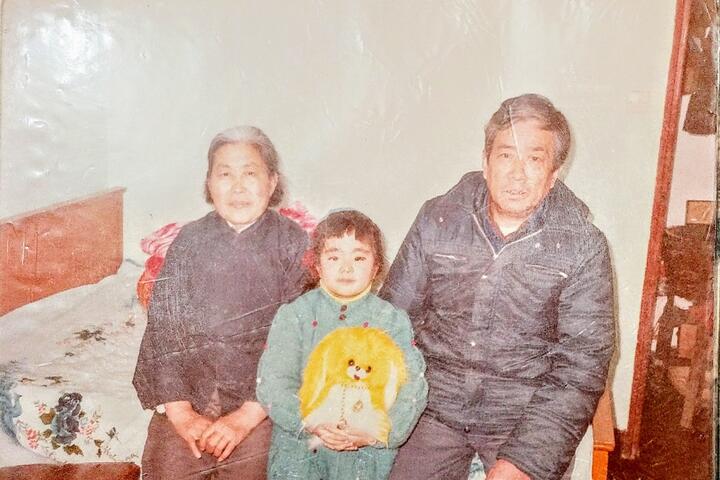
My grandfather and grandmother, with my cousin Zhu Yun.
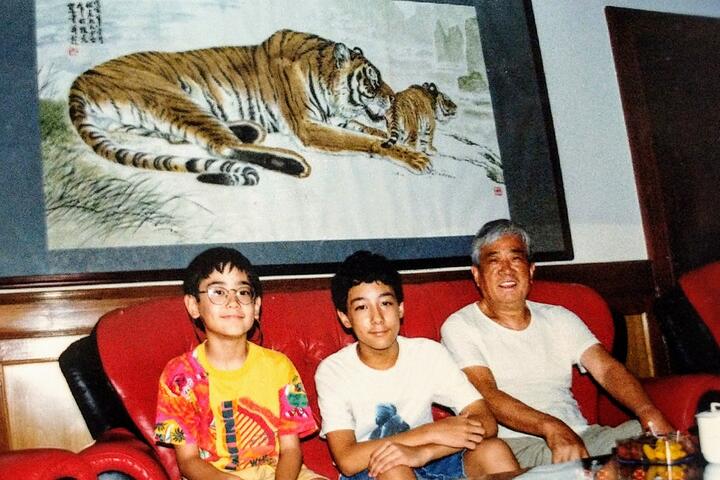
My brother and I with my grandfather. August of 1999.
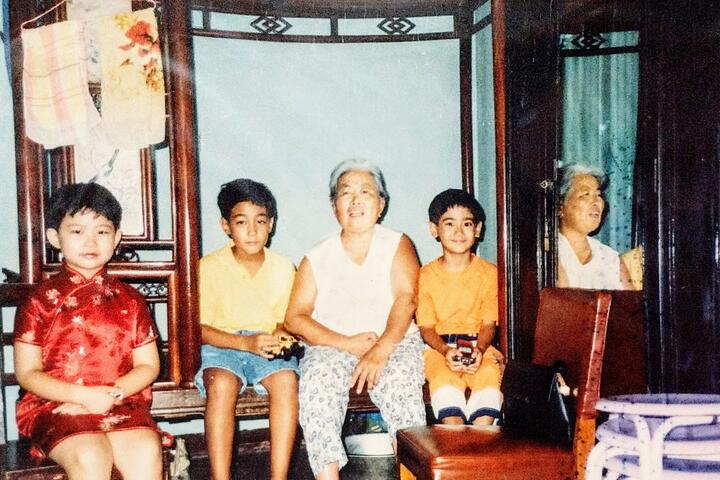
With my grandmother and cousin Zhu Wei Yi (Kim). August of 1997.
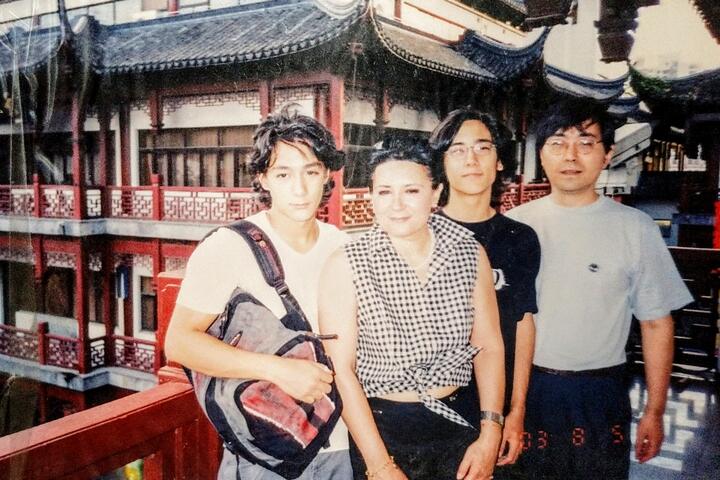
With my parents. August of 2003.
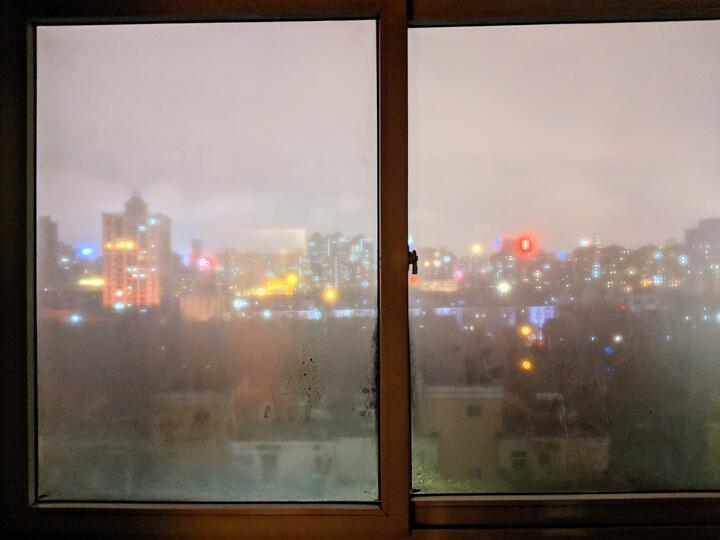
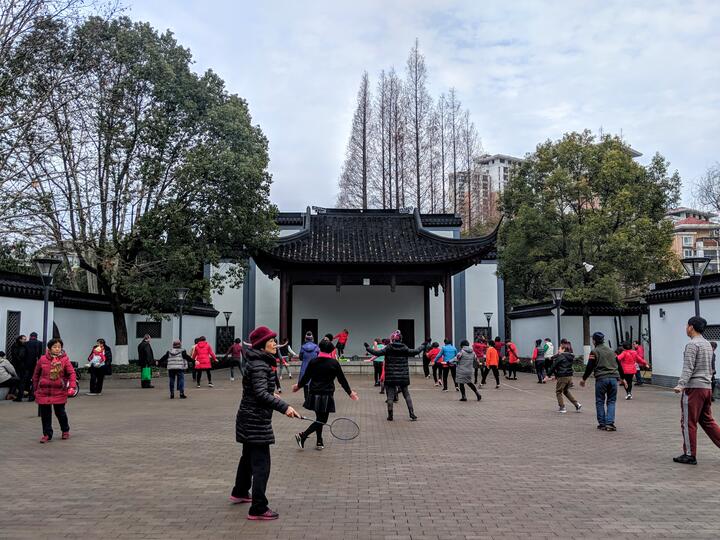
Free dance class in ZhaBei park. These seemed to be offered multiple times a day, and were very popular with the elderly population.
I was struck by how much of the community seemed to congregate in the park. Besides these classes, people practiced Tai Chi together, played Chinese chess and musical instruments, and sang in choruses. Others, like me, seemed to be happy to roam in the park, chat with friends, or meditate among the scenery.
I struggle to think of a comparable community life in New York City. Someday, I hope I will live among elders that emanate the same health, contentment, and ease I saw in ZhaBei.
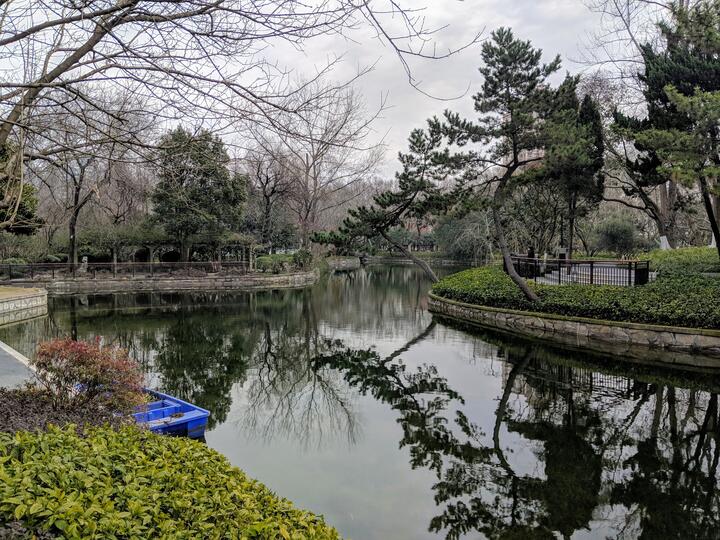
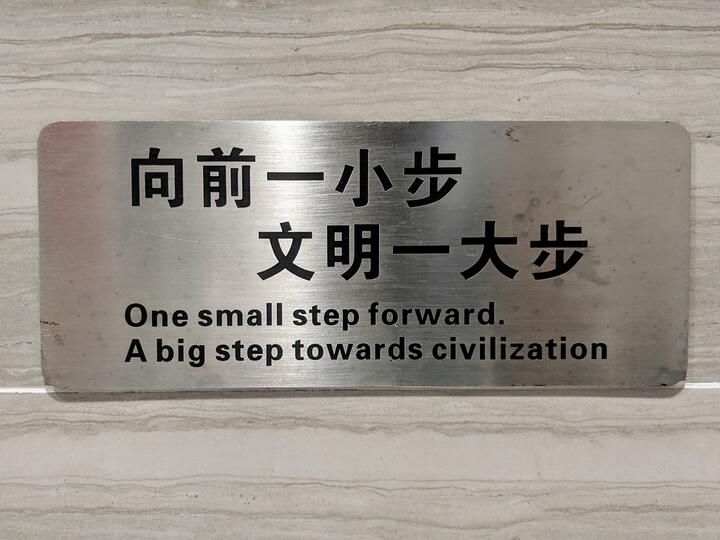
Sign placed above urinals in Zhabei Park's mens restroom. There is a lot to the Chinese regime, and its history, that is dark. The lingering spirit of collaboration and social camaraderie still manages to shine through.
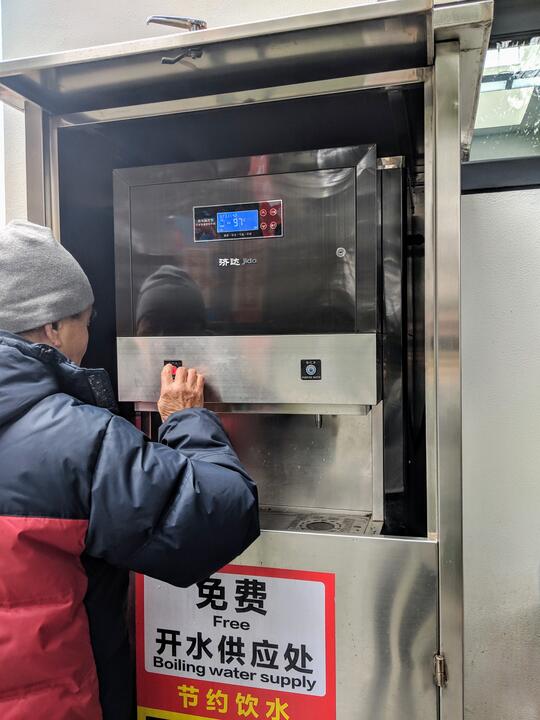
This machine, widely used, another example.
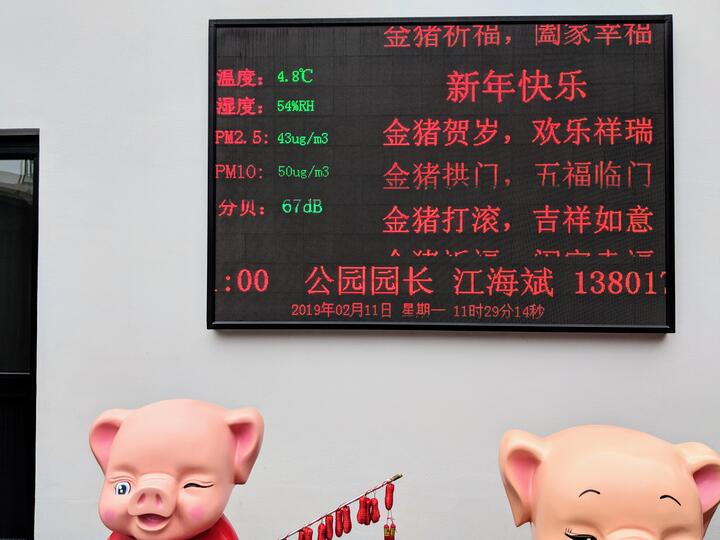
Perhaps, if we had more PM 2.5 displays, worldwide, more people would be able to quantify the value of environmental contexts.
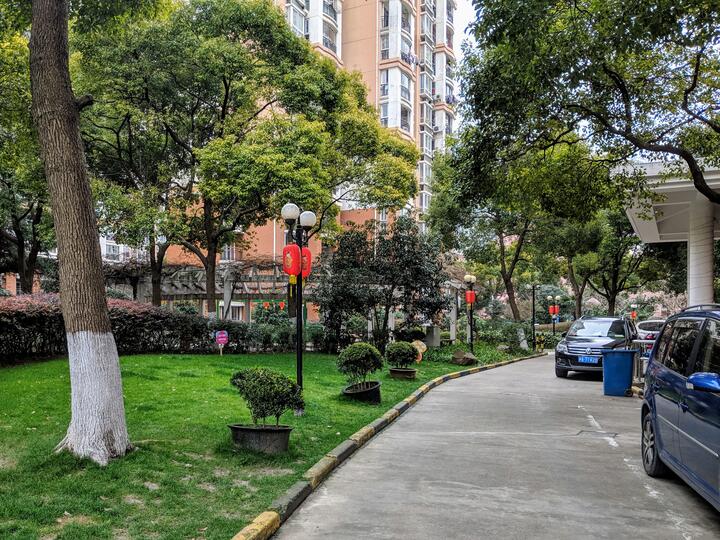
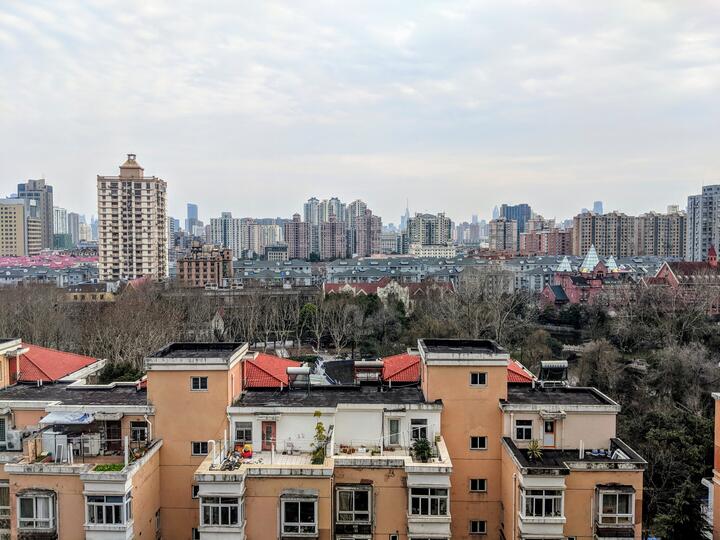
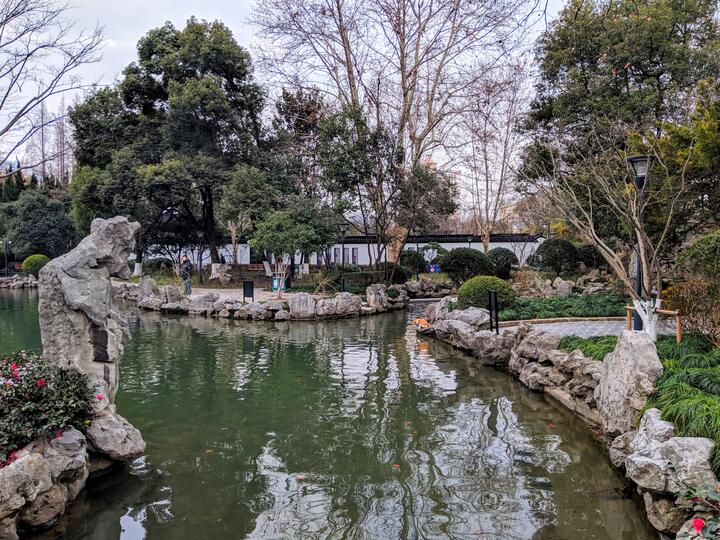
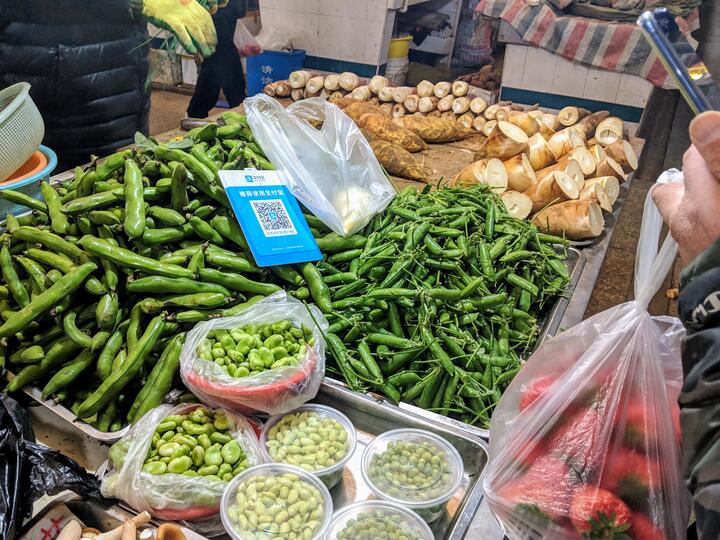
At the local market, vendors are now using Alipay. You scan the QR code to place your payment. Two years ago, it was still cash. Perhaps more slowly now, but still the signs are of a nation ascendant.
Also heartening was the strong presence of small businesses in my neighborhood. This made me note the difference in the application of technology. Supporting small businesses instead of a monolithic retailer. The flourishing of the just as convenient as the latter, without the resulting social ills.
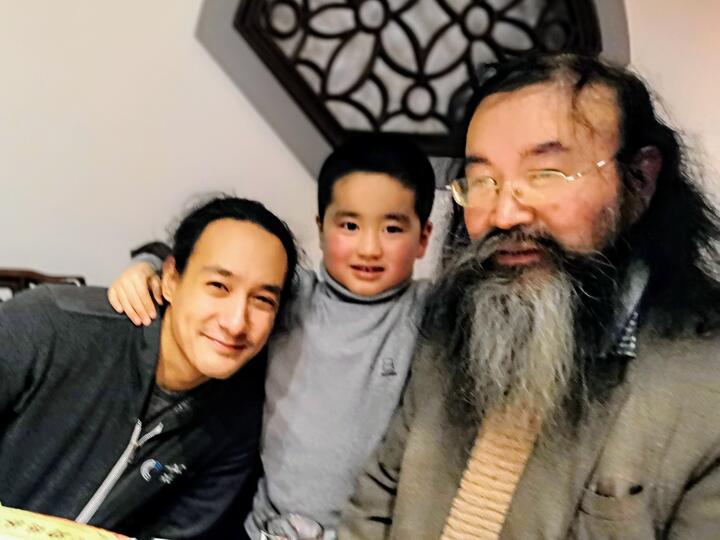
With my uncle, Zhu Ju Qi, and my nephew – my cousin Zhu Yun's son.
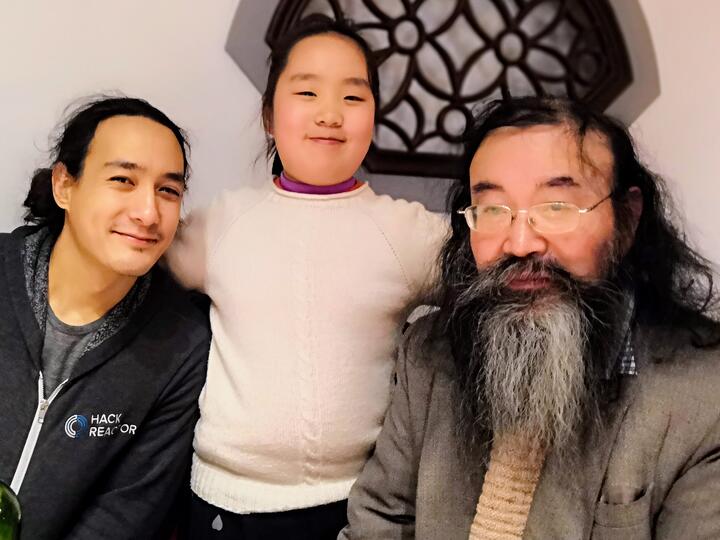
My niece, HuiHui, my cousin Lin Sen's daughter.
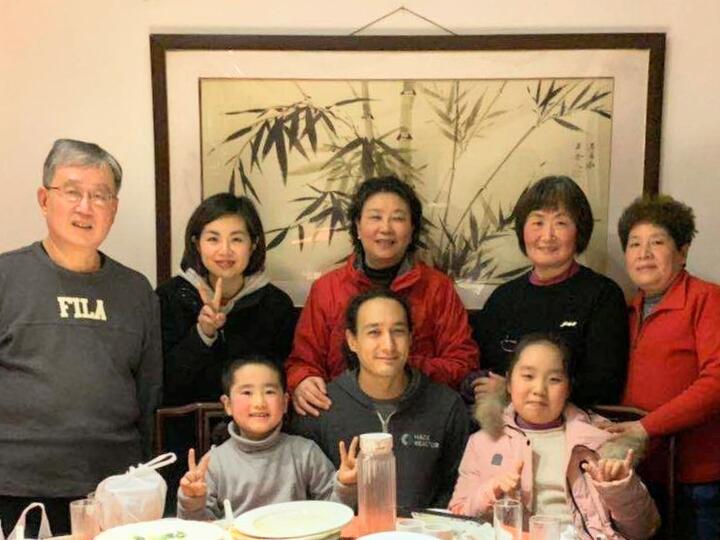
With my aunt's, uncle Zhu Ju Gong, and cousin Zhu Yun, at the Gondelin Vegetarian Restaurant on Nan Jing Lu.
I love Chinese gardens. They are fractal, meandering, varied, harmoniously integrating human needs with natural patterns. The nooks and crannies offering private, intimate space. It's the kind of setting I would love to work in, every day.
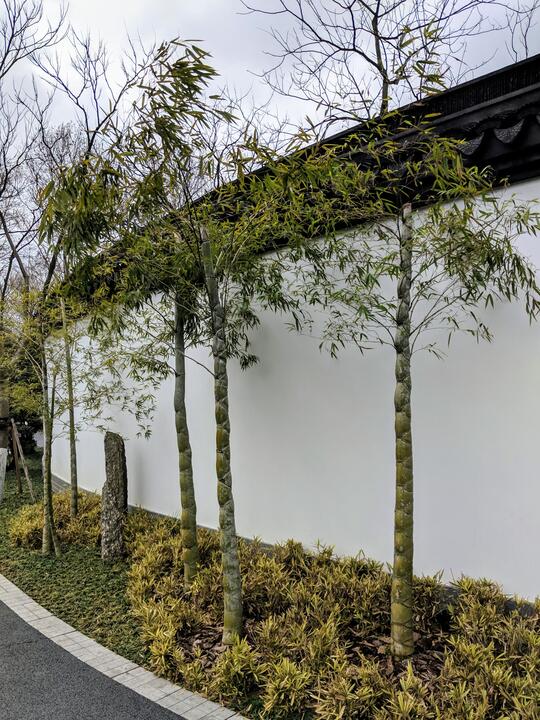
In the bamboo grove I delight wise kings;
A hundred acres of me by the Wei brings fame.
My green skin is naturally marked by the tears of the Xiang Goddess;
My scaly shoots pass on the scent of history.
My leaves will never change their color in frost;
The beauty of my misty twigs can never be concealed.
Few have understood me since the death of Wang Huizhi;
Since ancient times I have been known through brush and ink.
Journey to the West, Chapter 64.
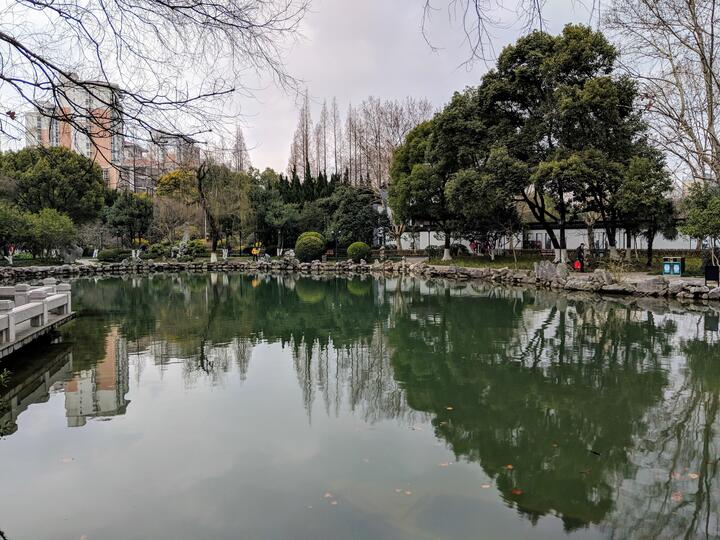
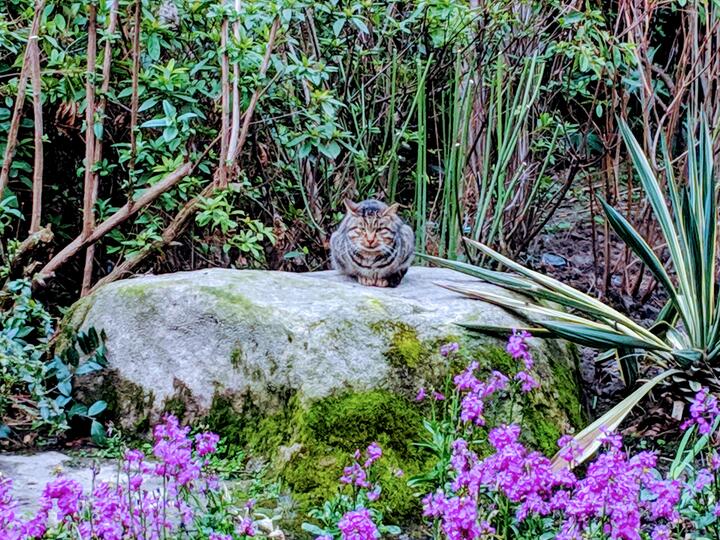
There seems to be a healthy, thriving community of community cats in the neighborhood, fed by volunteers. Unfortunately, the vast majority of them do not appear to be spayed.
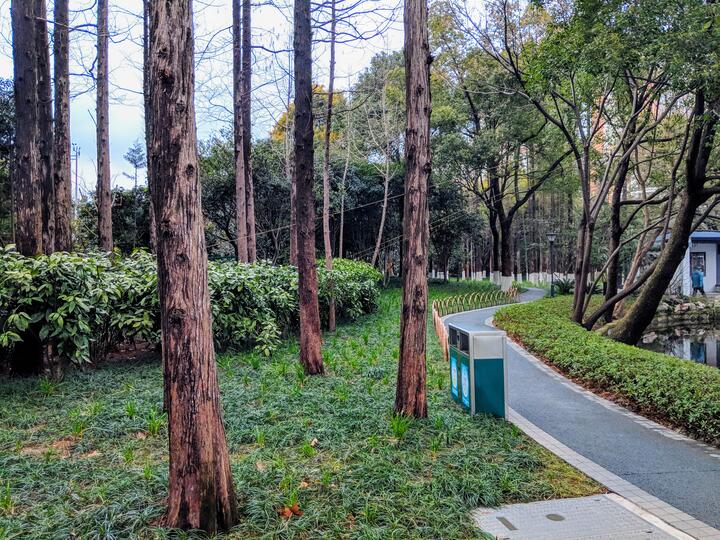
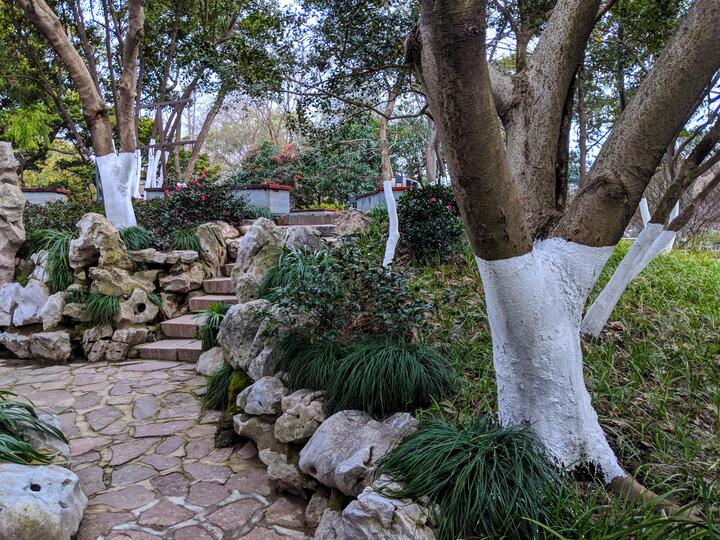
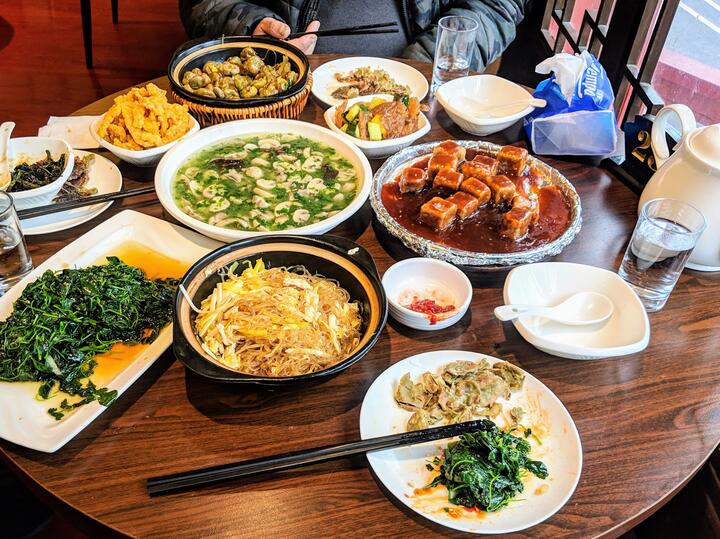
The Song Yuan teahouse outside ZhaBei Park.
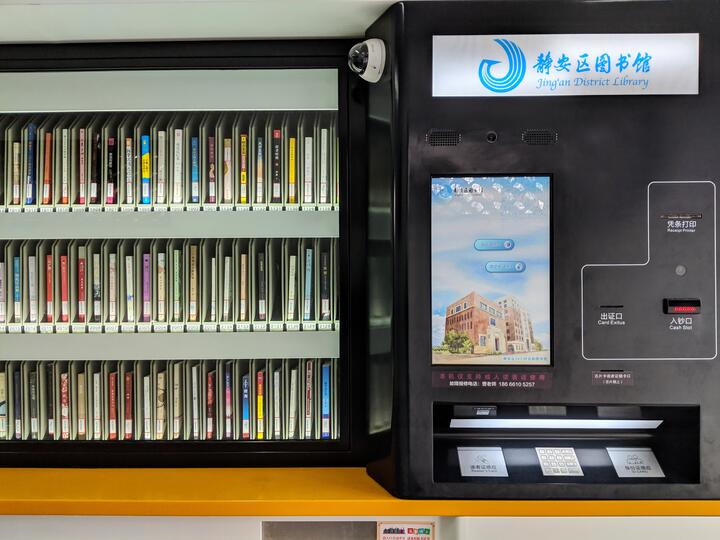
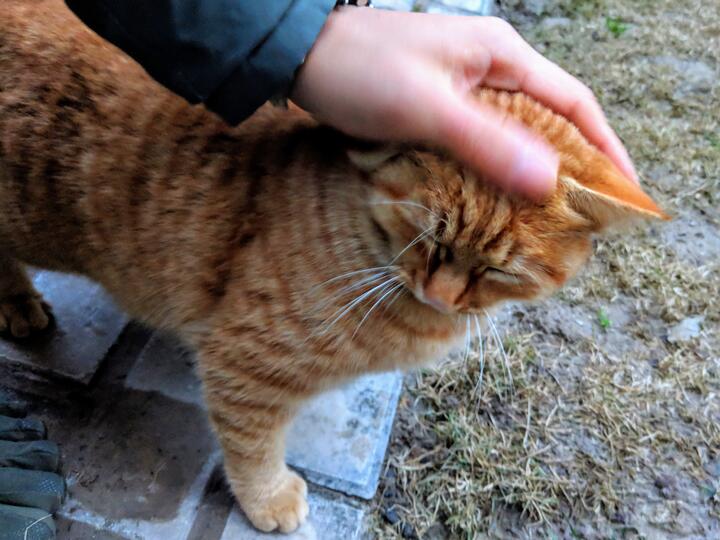
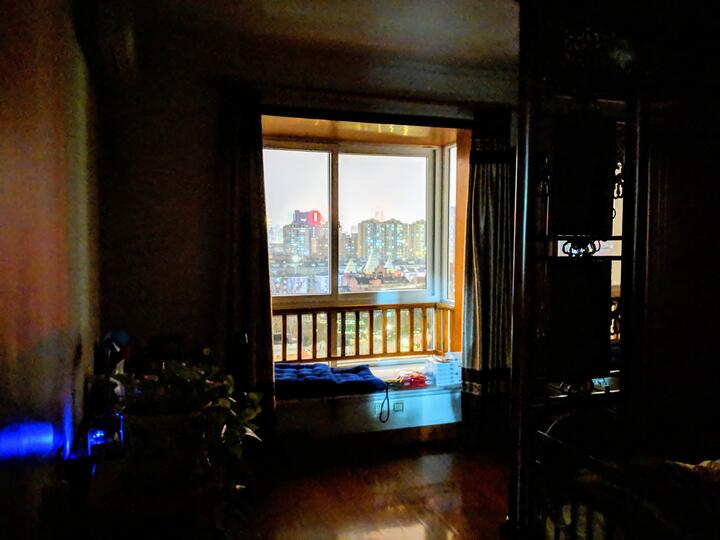
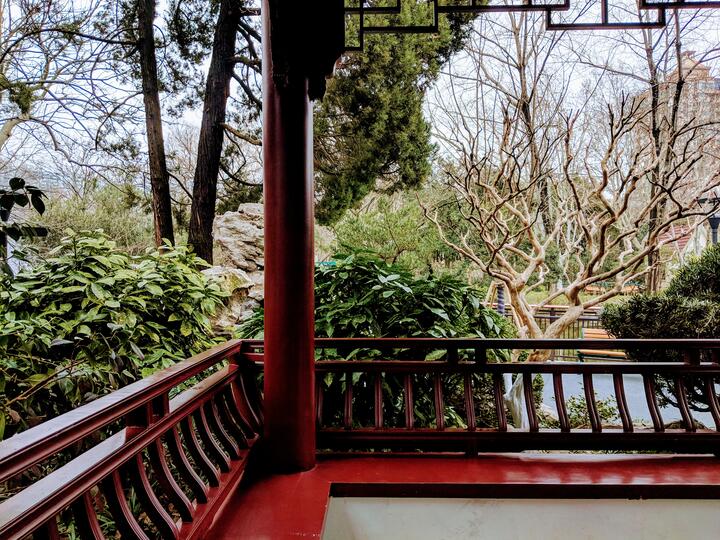
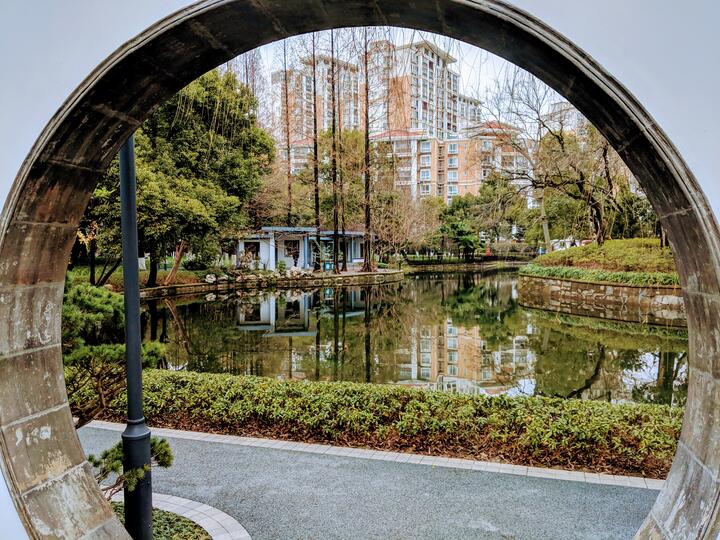
The aparment, seen from ZhaBei Park.
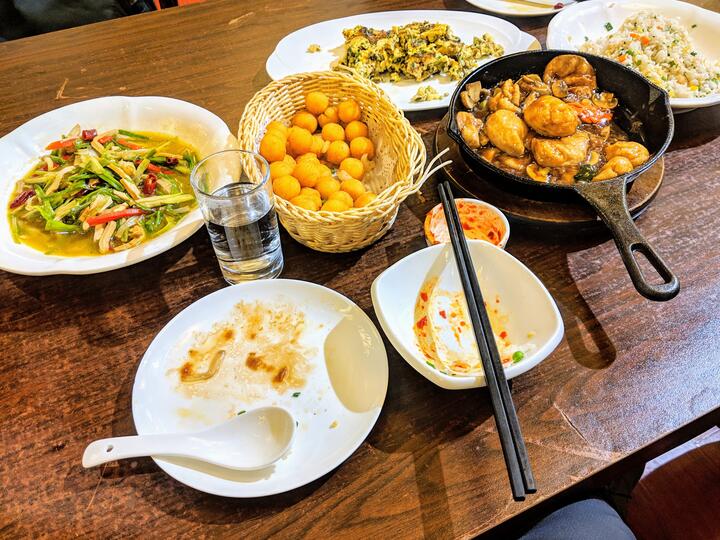
The last dinner before departure, again at the Song Yuan teahouse. The dinner, was 120 RMB, i.e., less than 20 USD. We had leftovers, and a free rice pudding desert was included with the meal.
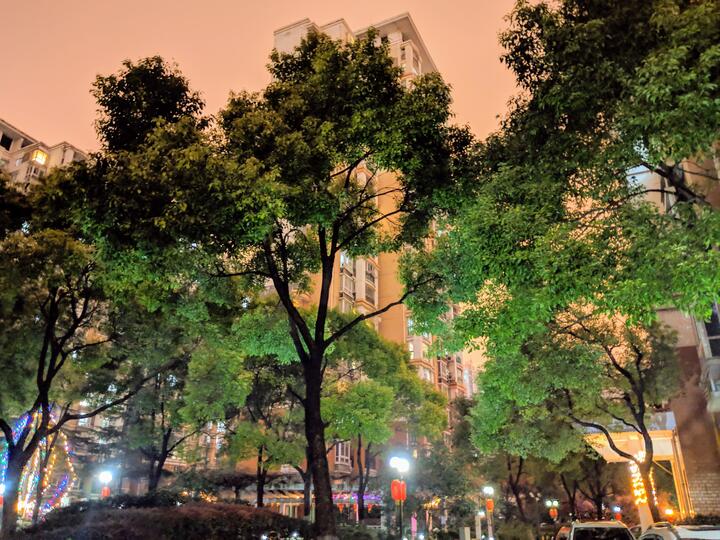
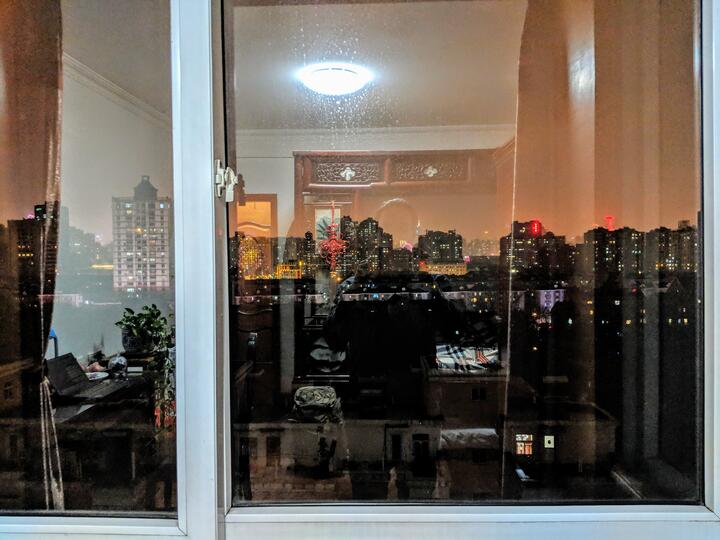
All packed up. If I close my eyes now, thousands of miles away, I can still feel as if I'm there. In the weeks after a return home, the mind struggles to tell which is real, and which is the dream. The reality on return is familiar, but a sudden shift from something that felt just as real.
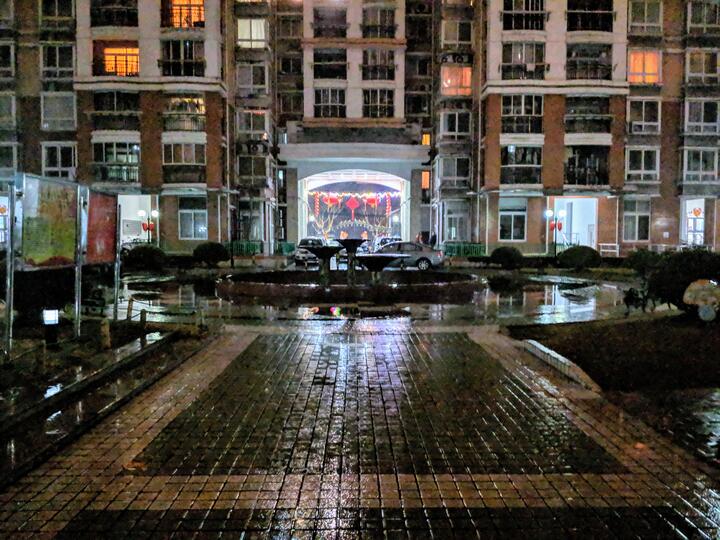
On the way to the airport, heartbroken but grateful.
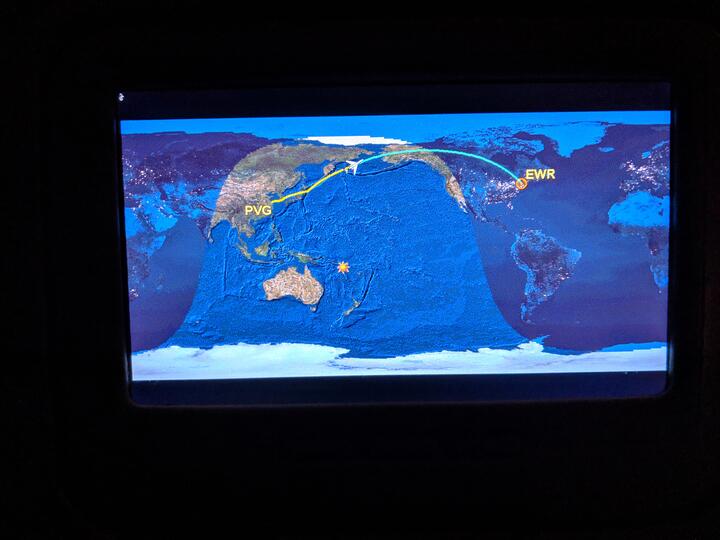
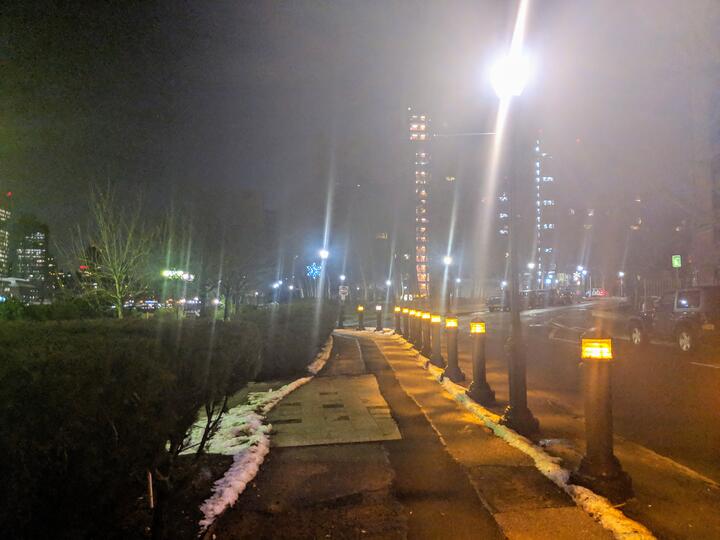
Recollection is the only way the immigrant can ever be at home – in more than one place at the same time.